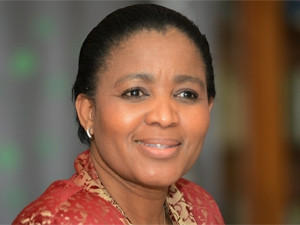
State-owned enterprise Broadband Infraco (BI) has seen its revenue plummet by more than a third over the past financial year, due to the withdrawal of business from SA's second fixed-line network, Neotel.
The broadband infrastructure company revealed its financial results for the year ended March, at its annual general meeting this morning, held with its stakeholders, the Department of Public Enterprises (DPE) and the Industrial Development Corporation (IDC).
While BI saw a 40% decline in revenue (attributed to "shrinking volumes of business from Neotel from the end of rights-of-use"), its customer base grew from seven to 11 customers during the year, while clients other than Neotel increased their share of business with the company. It received an unqualified audit.
While the company generated a positive cash flow of R10.2 million and the cost of its sales decreased by 37% (to R172.2 million), gross profit fell to R65 million (R54 million less than last year) and its operating loss increased from R95.2 million to R181.1 million. BI's revenue this year declined to R237 million, down from R394 million last year.
In the 2011 and 2010 financial years, revenue was R298 million and R306 million respectively. CFO Ramasela Magoele says the company still expects to see losses for the next two years. "But we are working on a turnaround plan and hope to break even in three years."
In July, its CE Puleng Kwele, who has held the reins at the company for about a year now, said government would need to invest up to R80 billion more in the entity in order for it to fulfil its state-sanctioned mandate. She noted that National Treasury had invested just R1.8 billion in BI since its inception five years ago.
On target?
Kwele says, despite the company's ongoing financial struggles, BI has, in the past year, met 75% of the targets contained within its shareholder contract. "Our ability to deliver on our mandate is what is important."
Kwele says national backhaul has increased by 112km of fibre and seven access points were established to enable third-parties to connect to BI's network. In terms of skills development and employment stability - in the context of the company's five years of existence - she says BI is now on the right path.
"We trained six of the 10 interns we intended to and appointed more experienced employees. We also filled critical skill positions and secured a full complement of permanent executives." Kwele says BI also sold 70% of its existing capacity on the West African Cable System (in which it is a tier one investor) for the Square Kilometre Array project led by the Department of Science and Technology.
Government mandate
A schedule two company, BI was awarded an individual electronic communications network services licence in October 2009, allowing it to sell high-capacity long-distance transmission services to licensed fixed and mobile network operators, Internet service providers and other value-added network service providers.
Schedule two entities are state-owned, but have to be profitable. BI is the only state-owned company that was created by an Act of Parliament solely for the purpose of rolling out strategic broadband infrastructure as an enabler of national development.
The company reports its activities and performance to the DPE in its capacity as the shareholder representative on behalf of government, and the IDC.
Share